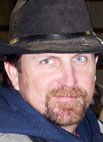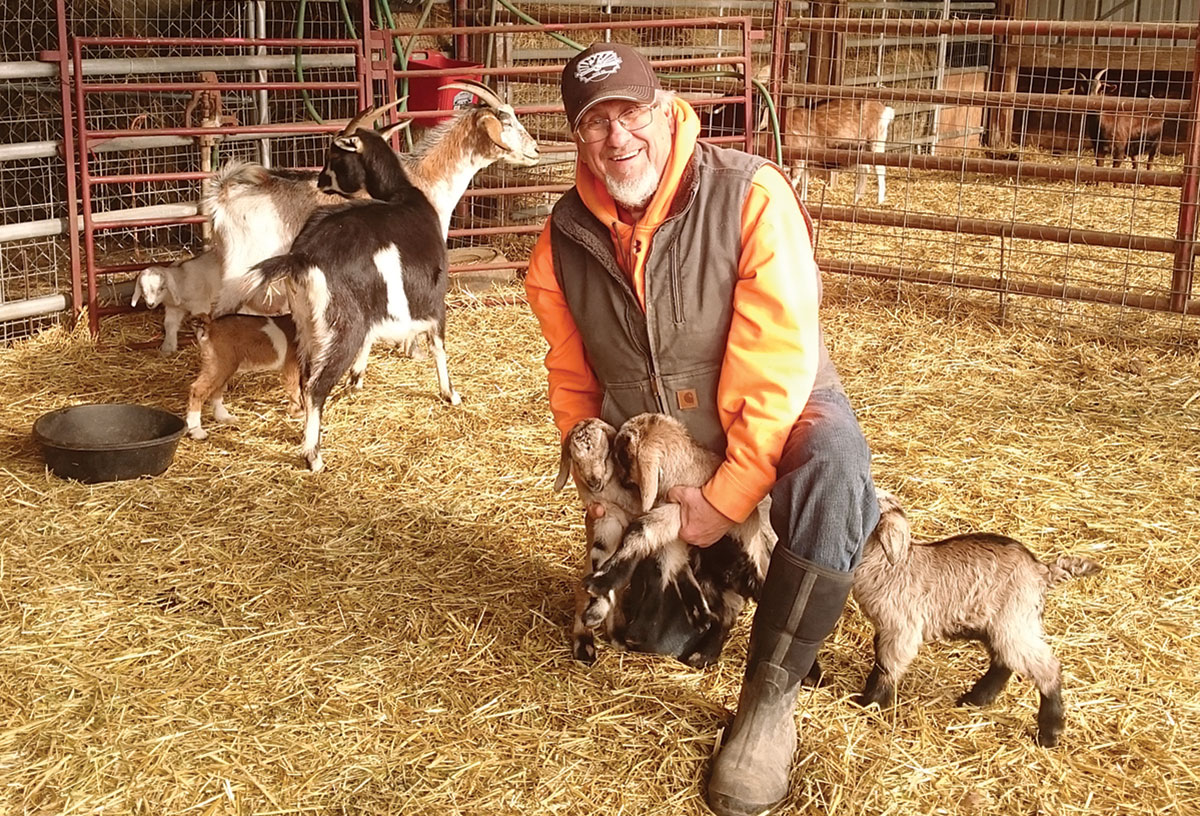
Kyle Tate began raising Boer goats when he was in sixth grade. “My dad and I put up some hay for some friends of ours and their neighbors had goats. I wanted to try it and here we are,” said the Mtn. Grove High School senior. “Here we are” for Kyle means, among other things, being in his second term on the national Board of Directors of the American Junior Boer Goat Association; winning numerous championships at livestock shows in several states; making friends all over the country; and winning the FFA Area Proficiency Award for his goats.
Kyle also shows and takes an active part in his family’s Angus cattle operation. “My family has had Angus cattle since 1933,” he said proudly. He likens Boer goats to Angus cattle. With the market there is for Boer goats, they are like the Angus of Boer goats,” he explained.
Kyle described the current market for meat goats as being “not like it was, but still one of the better markets.” He attributed that to “the ethnic population and the fact that 70 percent of all the goat meat consumed in the U.S. is still imported.” He described the meat as being “a lot like beef, but a leaner meat. It’s kind of a cross between venison and beef.”
Kyle and his parents, Keith and Nancy Tate, have very few problems with the goats kidding. “We usually have pretty good success with kidding. Especially in the winter, we do bring them up and put them in pens and watch them. This year we kidded in June and it was all on pasture. We didn’t have a lot of problems,” Kyle said. “The gestation period for goats is five months, then it’s three months to weaning, so we usually get about a litter and a half a year. They will usually have single births to quadruplets.” The occasional bottle babies are fed milk replacer.
Part of the Tates’ success with raising Boer goats is due to an intensive health program. “We worm and do a whole herd health program on our goats. Caseous lymphadenitis is a big sheep and goat problem. We vaccinate for it and keep herd health up,” explained Kyle. “Our vet has sheep and he likes a new challenge. He is more than willing to jump in with us.”
Kyle said that he and his parents sat down and figured up the feed ration for the goats. “We have a PTO grinder and I mix it myself. We mix oats, corn, soybean meal, sunflower seeds,” he said.
Kyle plans to further his agricultural education at Redlands Community College in El Reno, Okla., studying livestock embryology. He said this is what he wants to study because “We AI all of our cows and I started an ET (embryo transfer) program with our goats and AI on the goats.” He feels it is a natural fit for it since he has grown up with it, and several members of his family are schooled in AI. After college, he plans to return to the farm where he has lived all his life.
Kyle said he likes to be outside and work with his hands. He offered the following advice for young people who think they might want to pursue farming.
Kyle's advice to young people wanting to farm:
1. Definitely be prepared for hardship and work.
2. Maybe look for a job off the farm to help support it.
3. Know what you’re doing.
4. Don’t jump in, expecting to do it. Do some research first.







